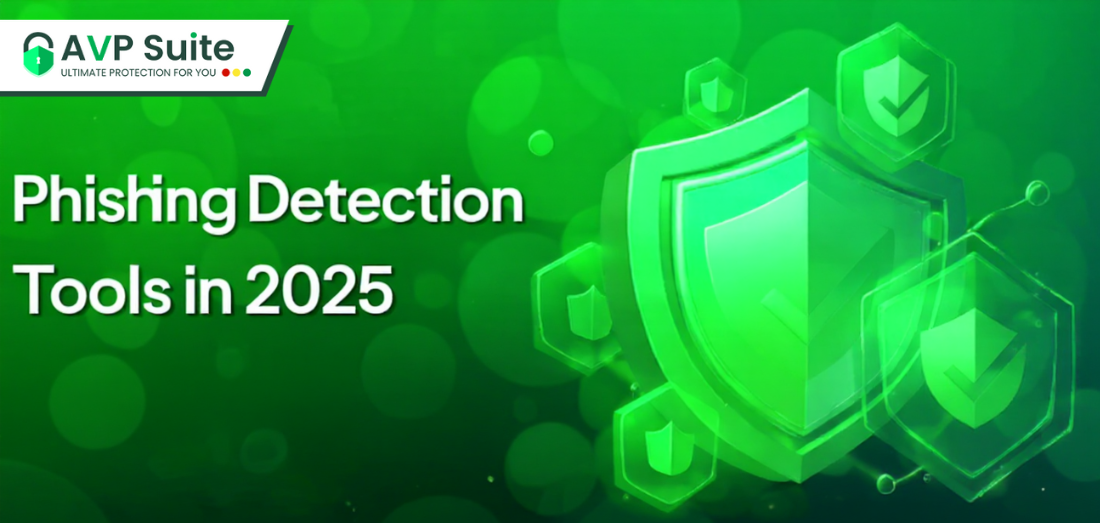
Hackers Target Sporting Events: Tips to Prevent Identity Theft
January 7,2025
7 mins
Cybercriminals take full advantage of the excitement surrounding high-profile global events, such as sporting tournaments, by registering fake domains to launch phishing and scam attacks. These misleading tactics are designed to leverage public interest, with hackers targeting naive individuals seeking event-related information.
Event-related abuse favors trends such as domain registrations, DNS traffic, URL traffic, total active domains, decision exchange requests, and domain textual patterns.
High-profile international events, product releases, and sporting tournaments generate cybercriminal activity as criminals seek to exploit members’ interests.
“These criminals register deceptive domains mimicking official websites to sell counterfeit merchandise and offer fraudulent services. These sites can reach millions of people searching for event-related information or resources”, Palo Alto Networks report shared with Cyber Security News.
| Table of Contents!
Fake Domains: A Key Strategy for Cybercriminals DNS and URL Traffic Reveal Hacker Tactics Proactive Monitoring is the Best Defense Signs of Identity Theft How to Protect Yourself from Identity Theft Get AVP Suite for Identity Theft Prevention Final Takeaway! |
Fake Domains: A Key Strategy for Cybercriminals
One of the primary actions hackers take is registering domain names containing event-specific keywords. Reports highlight that over 200,000 newly registered domains (NRDs) are detected daily using resources like zone files, WHOIS databases, and passive DNS. Many of these domains exhibit characteristics suggesting malicious intent, such as using suspicious keywords, patterns, or top-level domain (TLD) systems.
Many of those domain names have characteristics that suggest malicious intent, including suspicious keywords, patterns, or top-level domain (TLD) systems.
By applying the analysis of the NRDs, cybersecurity teams can identify consistent language patterns that may suggest the various threat actors were coordinating efforts.
For example, researchers have identified spikes in NRDs using event-specific terms that are often linked to significant milestones, as evidenced by analyzed patterns in previously investigated fraud campaigns.
DNS and URL Traffic Reveal Hacker Tactics
DNS traffic evaluation offers important insights into potential threats. Unusual spikes in domain queries often indicate malicious activities and Command and Control (C2) communications.
During the 2024 Olympic Games, fraudulent DNS traffic accounted for 10% to 15% of total activity, with significant surges recorded on April 20 (100-day countdown) and July 26 (opening ceremony).
Similarly, URL traffic patterns reveal risk actors that entice unsuspecting customers into occasion-related domains. Intentional visitors to websites that engage, endorse, or expose consumers to phishing and other fraudulent activity spike around key dates associated with these events. In addition to indicators from NRDs, URL traffic patterns provide evidence of risk actor activity leveraging opportunistic fraud.
Change request trends—modifications made to reclassify network domains—are another sign of cybercriminals’ evolving strategies. These requests often include surprising events or changes in consumer behavior and provide a valuable indicator of potential threats.
Related Read: Top 7 Tips to Safeguard Your Digital Identity Like a Pro!
Proactive Monitoring is the Best Defense
“By monitoring key metrics like domain registrations, textual patterns, DNS anomalies, and change request trends, security teams can identify and mitigate threats early,” researchers stated.
The knowledge obtained from observing newly registered domains (NRDs), DNS queries, and URL patterns allows businesses to block unsafe domains before they can inflict significant harm. As notable events are heavily advertised and gain a large online following, continually monitoring anticipated events for opportunistic fraud remains the most effective method for protecting consumers from these types of cyberattacks.
Over the past few years, as opportunistic fraud has become more common, it has become increasingly important to stay updated on the various digital risks to protect individuals and organizations during celebrated events.
Signs of Identity Theft
- Unexpected Account Charges: Unrecognized transactions to your bank or credit card statements.
- Denied Credit Applications: Rejections without clean motives despite precise credit records.
- Missing Mail: Bills or financial documents not arriving could imply mail interception.
- Suspicious Alerts: Notifications for surprising logins or password changes.
Want to Read the Latest Cybersecurity News?Stay Updated with AVP Daily |
How to Protect Yourself from Identity Theft
According to one report, identity theft is becoming an increasing threat in the interconnected world we live in, with millions of people affected each year.
Statista reports that in 2022, more than 15 million Americans were victims of identity theft, resulting in billions of dollars in losses.
It is essential to protect your personal information online to help maintain data privacy and financial stability.
We have outlined the key signs of identity theft below along with tips to protect you, and, AVP Total Security is an option to help protect your information online, and keep your data safe.
- Monitor Your Accounts: Review your bank and credit card statements regularly for expenditures and suspicious transactions.
- Enable Fraud Alerts: This should be established with your financial institution for suspicious transactions.
- Use Strong Passwords: It is important to have specific passwords for each online account and utilize two-factor authentication.
- Secure Devices with AVP Suite: AVP Total Security contains tools to protect you from phishing emails, malware, and data breaches.
- Be Cautious Online: Never provide personal information on websites or in unsolicited emails that look legitimate.
- Update Software Regularly: Keep all devices and applications updated to patch vulnerabilities.
- Dark Web Monitoring: Use AVP’s antivirus software to check if your information is exposed on the dark web.
Read More: 7 Essential Safety Tips to Protect Yourself from Travel Scams
Get AVP Suite for Identity Theft Prevention
- Advanced Phishing and Scam Prevention: The AVP Suite detects and prevents phishing emails and malicious links that cybercriminals utilize to acquire your login credentials and personal information.
- Two-Factor Authentication Integration: The software also includes the ability to use two-factor authentication, which adds layer of security to your online accounts, protecting you from unauthorized access when logging into your accounts.
- Real-Time Malware Protection: The AVP Suite malware protection solution offers advanced protection against spyware, keyloggers, and other forms of malicious software that are meant to capture sensitive login information.
- Dark Web Monitoring: AVP Productivity Suite actively scans the dark web for your stolen credentials and alerts you of the danger of your personal information, or login credentials, being captured.
- Automatic Security Updates: The software ensures that your system is continuously updated to align with the latest cybersecurity protocols and mitigate against evolving threats and vulnerabilities.
- Suspicious Activity Monitoring: AVP Suite monitors and analyzes unusual login attempts or suspicious behaviors to prevent unauthorized access.
- Encrypted Online Sessions
It guarantees online data protection by encrypting your browsing sessions, safeguarding sensitive information like login details from being intercepted. - Data Privacy Controls: AVP Suite provides tools to help limit the amount of personal data you share online, which will help reduce exposure to phishing and scam attacks.
- Comprehensive Cybersecurity Ecosystem: AVP Total Security is a comprehensive Cybersecurity Ecosystem that integrates all the features into an interconnected suit that provides unparalleled protection of your login credentials and personal data.
Final Takeaway!
While hackers continue to take advantage of sporting events’ excitement to try to target unsuspecting people, you don’t need to go it alone on the defense. Protecting your digital identity and securing your footing online is essential in today’s cyber environment.
AVP Total Security provides robust protection to put a barrier between your personal information, login credentials, and activities and hackers. AVP Suite offers advanced identity theft protection, login protection, and alerts to potential threats—your complete defense against cyber attack.
Secure your identity with AVP Total Security now!
Cybercriminals take full advantage of the excitement surrounding high-profile global events, such as sporting tournaments, by registering fake domains to launch phishing and scam attacks. These misleading tactics are designed to leverage public interest, with hackers targeting naive individuals seeking event-related information.
Event-related abuse favors trends such as domain registrations, DNS traffic, URL traffic, total active domains, decision exchange requests, and domain textual patterns.
High-profile international events, product releases, and sporting tournaments generate cybercriminal activity as criminals seek to exploit members’ interests.
“These criminals register deceptive domains mimicking official websites to sell counterfeit merchandise and offer fraudulent services. These sites can reach millions of people searching for event-related information or resources”, Palo Alto Networks report shared with Cyber Security News.
Fake Domains: A Key Strategy for Cybercriminals
One of the primary actions hackers take is registering domain names containing event-specific keywords. Reports highlight that over 200,000 newly registered domains (NRDs) are detected daily using resources like zone files, WHOIS databases, and passive DNS. Many of these domains exhibit characteristics suggesting malicious intent, such as using suspicious keywords, patterns, or top-level domain (TLD) systems.
Many of those domain names have characteristics that suggest malicious intent, including suspicious keywords, patterns, or top-level domain (TLD) systems.
By applying the analysis of the NRDs, cybersecurity teams can identify consistent language patterns that may suggest the various threat actors were coordinating efforts.
For example, researchers have identified spikes in NRDs using event-specific terms that are often linked to significant milestones, as evidenced by analyzed patterns in previously investigated fraud campaigns.
DNS and URL Traffic Reveal Hacker Tactics
DNS traffic evaluation offers important insights into potential threats. Unusual spikes in domain queries often indicate malicious activities and Command and Control (C2) communications.
During the 2024 Olympic Games, fraudulent DNS traffic accounted for 10% to 15% of total activity, with significant surges recorded on April 20 (100-day countdown) and July 26 (opening ceremony).
Similarly, URL traffic patterns reveal risk actors that entice unsuspecting customers into occasion-related domains. Intentional visitors to websites that engage, endorse, or expose consumers to phishing and other fraudulent activity spike around key dates associated with these events. In addition to indicators from NRDs, URL traffic patterns provide evidence of risk actor activity leveraging opportunistic fraud.
Change request trends—modifications made to reclassify network domains—are another sign of cybercriminals’ evolving strategies. These requests often include surprising events or changes in consumer behavior and provide a valuable indicator of potential threats.
Related Read: Top 7 Tips to Safeguard Your Digital Identity Like a Pro!
Proactive Monitoring is the Best Defense
“By monitoring key metrics like domain registrations, textual patterns, DNS anomalies, and change request trends, security teams can identify and mitigate threats early,” researchers stated.
The knowledge obtained from observing newly registered domains (NRDs), DNS queries, and URL patterns allows businesses to block unsafe domains before they can inflict significant harm. As notable events are heavily advertised and gain a large online following, continually monitoring anticipated events for opportunistic fraud remains the most effective method for protecting consumers from these types of cyberattacks.
Over the past few years, as opportunistic fraud has become more common, it has become increasingly important to stay updated on the various digital risks to protect individuals and organizations during celebrated events.
Signs of Identity Theft
- Unexpected Account Charges: Unrecognized transactions to your bank or credit card statements.
- Denied Credit Applications: Rejections without clean motives despite precise credit records.
- Missing Mail: Bills or financial documents now not arriving could imply mail interception.
- Suspicious Alerts: Notifications for surprising logins or password changes.
How to Protect Yourself from Identity Theft
According to one report, identity theft is becoming an increasing threat in the interconnected world we live in, with millions of people affected each year.
Statista reports that in 2022, more than 15 million Americans were victims of identity theft, resulting in billions of dollars in losses.
It is essential to protect your personal information online to help maintain data privacy and financial stability.
We have outlined the key signs of identity theft below along with tips to protect you, and, AVP Total Security is an option to help protect your information online, and keep your data safe.
- Monitor Your Accounts: Review your bank and credit card statements regularly for expenditures and suspicious transactions.
- Enable Fraud Alerts: This should be established with your financial institution for suspicious transactions.
- Use Strong Passwords: It is important to have specific passwords for each online account and utilize two-factor authentication.
- Secure Devices with AVP Suite: AVP Total Security contains tools to protect you from phishing emails, malware, and data breaches.
- Be Cautious Online: Never provide personal information on websites or in unsolicited emails that look legitimate.
- Update Software Regularly: Keep all devices and applications updated to patch vulnerabilities.
- Dark Web Monitoring: Use AVP’s antivirus software to check if your information is exposed on the dark web.
Read More: 7 Essential Safety Tips to Protect Yourself from Travel Scams
Get AVP Suite for Identity Theft Prevention
-
- Advanced Phishing and Scam Prevention: The AVP Suite detects and prevents phishing emails and malicious links that cybercriminals utilize to acquire your login credentials and personal information.
- Two-Factor Authentication Integration: The software also includes the ability to use two-factor authentication, which adds layer of security to your online accounts, protecting you from unauthorized access when logging into your accounts.
- Real-Time Malware Protection: The AVP Suite malware protection solution offers advanced protection against spyware, keyloggers, and other forms of malicious software that are meant to capture sensitive login information.
- Dark Web Monitoring: AVP Productivity Suite actively scans the dark web for your stolen credentials and alerts you of the danger of your personal information, or login credentials, being captured.
- Automatic Security Updates: The software ensures that your system is continuously updated to align with the latest cybersecurity protocols and mitigate against evolving threats and vulnerabilities.
- Suspicious Activity Monitoring: AVP Suite monitors and analyzes unusual login attempts or suspicious behaviors to prevent unauthorized access.
- Encrypted Online Sessions
It guarantees online data protection by encrypting your browsing sessions, safeguarding sensitive information like login details from being intercepted. - Data Privacy Controls: AVP Suite provides tools to help limit the amount of personal data you share online, which will help reduce exposure to phishing and scam attacks.
- Comprehensive Cybersecurity Ecosystem: AVP Total Security is a comprehensive Cybersecurity Ecosystem that integrates all the features into an interconnected suit that provides unparalleled protection of your login credentials and personal data.
Final Takeaway!
While hackers continue to take advantage of sporting events’ excitement to try to target unsuspecting people, you don’t need to go it alone on the defense. Protecting your digital identity and securing your footing online is essential in today’s cyber environment.
AVP Total Security provides robust protection to put a barrier between your personal information, login credentials, and activities and hackers. AVP Suite offers advanced identity theft protection, login protection, and alerts to potential threats—your complete defense against cyber attack.
Secure your identity with AVP Total Security now!
Keep it safe from cybercriminals with AVP Total Security
Claim Your Free Trial!






